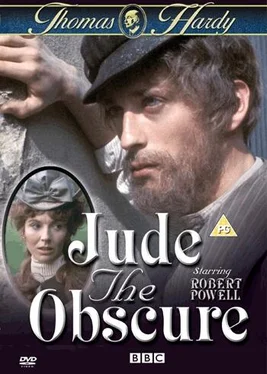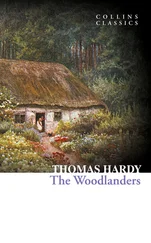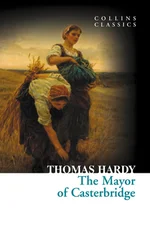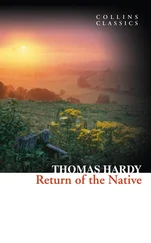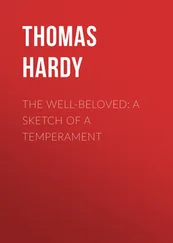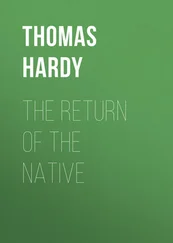Meanwhile the academic dignitaries to whom Jude had written vouchsafed no answer, and the young man was thus thrown back entirely on himself, as formerly, with the added gloom of a weakened hope. By indirect inquiries he soon perceived clearly what he had long uneasily suspected, that to qualify himself for certain open scholarships and exhibitions was the only brilliant course. But to do this a good deal of coaching would be necessary, and much natural ability. It was next to impossible that a man reading on his own system, however widely and thoroughly, even over the prolonged period of ten years, should be able to compete with those who had passed their lives under trained teachers and had worked to ordained lines.
The other course, that of buying himself in, so to speak, seemed the only one really open to men like him, the difficulty being simply of a material kind. With the help of his information he began to reckon the extent of this material obstacle, and ascertained, to his dismay, that, at the rate at which, with the best of fortune, he would be able to save money, fifteen years must elapse before he could be in a position to forward testimonials to the head of a college and advance to a matriculation examination. The undertaking was hopeless.
He saw what a curious and cunning glamour the neighbourhood of the place had exercised over him. To get there and live there, to move among the churches and halls and become imbued with the genius loci , had seemed to his dreaming youth, as the spot shaped its charms to him from its halo on the horizon, the obvious and ideal thing to do. "Let me only get there," he had said with the fatuousness of Crusoe over his big boat, "and the rest is but a matter of time and energy." It would have been far better for him in every way if he had never come within sight and sound of the delusive precincts, had gone to some busy commercial town with the sole object of making money by his wits, and thence surveyed his plan in true perspective. Well, all that was clear to him amounted to this, that the whole scheme had burst up, like an iridescent soap-bubble, under the touch of a reasoned inquiry. He looked back at himself along the vista of his past years, and his thought was akin to Heine's:
Above the youth's inspired and flashing eyes
I see the motley mocking fool's-cap rise!
Fortunately he had not been allowed to bring his disappointment into his dear Sue's life by involving her in this collapse. And the painful details of his awakening to a sense of his limitations should now be spared her as far as possible. After all, she had only known a little part of the miserable struggle in which he had been engaged thus unequipped, poor, and unforeseeing.
He always remembered the appearance of the afternoon on which he awoke from his dream. Not quite knowing what to do with himself, he went up to an octagonal chamber in the lantern of a singularly built theatre that was set amidst this quaint and singular city. It had windows all round, from which an outlook over the whole town and its edifices could be gained. Jude's eyes swept all the views in succession, meditatively, mournfully, yet sturdily. Those buildings and their associations and privileges were not for him. From the looming roof of the great library, into which he hardly ever had time to enter, his gaze travelled on to the varied spires, halls, gables, streets, chapels, gardens, quadrangles, which composed the ensemble of this unrivalled panorama. He saw that his destiny lay not with these, but among the manual toilers in the shabby purlieu which he himself occupied, unrecognized as part of the city at all by its visitors and panegyrists, yet without whose denizens the hard readers could not read nor the high thinkers live.
He looked over the town into the country beyond, to the trees which screened her whose presence had at first been the support of his heart, and whose loss was now a maddening torture. But for this blow he might have borne with his fate. With Sue as companion he could have renounced his ambitions with a smile. Without her it was inevitable that the reaction from the long strain to which he had subjected himself should affect him disastrously. Phillotson had no doubt passed through a similar intellectual disappointment to that which now enveloped him. But the schoolmaster had been since blest with the consolation of sweet Sue, while for him there was no consoler.
Descending to the streets, he went listlessly along till he arrived at an inn, and entered it. Here he drank several glasses of beer in rapid succession, and when he came out it was night. By the light of the flickering lamps he rambled home to supper, and had not long been sitting at table when his landlady brought up a letter that had just arrived for him. She laid it down as if impressed with a sense of its possible importance, and on looking at it Jude perceived that it bore the embossed stamp of one of the colleges whose heads he had addressed. " One —at last!" cried Jude.
The communication was brief, and not exactly what he had expected; though it really was from the master in person. It ran thus:
Biblioll College.
Sir,—I have read your letter with interest; and, judging from your description of yourself as a working-man, I venture to think that you will have a much better chance of success in life by remaining in your own sphere and sticking to your trade than by adopting any other course. That, therefore, is what I advise you to do. Yours faithfully,
T. Tetuphenay.
To Mr. J. Fawley, Stone-mason.
This terribly sensible advice exasperated Jude. He had known all that before. He knew it was true. Yet it seemed a hard slap after ten years of labour, and its effect upon him just now was to make him rise recklessly from the table, and, instead of reading as usual, to go downstairs and into the street. He stood at a bar and tossed off two or three glasses, then unconsciously sauntered along till he came to a spot called The Fourways in the middle of the city, gazing abstractedly at the groups of people like one in a trance, till, coming to himself, he began talking to the policeman fixed there.
That officer yawned, stretched out his elbows, elevated himself an inch and a half on the balls of his toes, smiled, and looking humorously at Jude, said, "You've had a wet, young man."
"No; I've only begun," he replied cynically.
Whatever his wetness, his brains were dry enough. He only heard in part the policeman's further remarks, having fallen into thought on what struggling people like himself had stood at that crossway, whom nobody ever thought of now. It had more history than the oldest college in the city. It was literally teeming, stratified, with the shades of human groups, who had met there for tragedy, comedy, farce; real enactments of the intensest kind. At Fourways men had stood and talked of Napoleon, the loss of America, the execution of King Charles, the burning of the Martyrs, the Crusades, the Norman Conquest, possibly of the arrival of Caesar. Here the two sexes had met for loving, hating, coupling, parting; had waited, had suffered, for each other; had triumphed over each other; cursed each other in jealousy, blessed each other in forgiveness.
He began to see that the town life was a book of humanity infinitely more palpitating, varied, and compendious than the gown life. These struggling men and women before him were the reality of Christminster, though they knew little of Christ or Minster. That was one of the humours of things. The floating population of students and teachers, who did know both in a way, were not Christminster in a local sense at all.
He looked at his watch, and, in pursuit of this idea, he went on till he came to a public hall, where a promenade concert was in progress. Jude entered, and found the room full of shop youths and girls, soldiers, apprentices, boys of eleven smoking cigarettes, and light women of the more respectable and amateur class. He had tapped the real Christminster life. A band was playing, and the crowd walked about and jostled each other, and every now and then a man got upon a platform and sang a comic song.
Читать дальше
